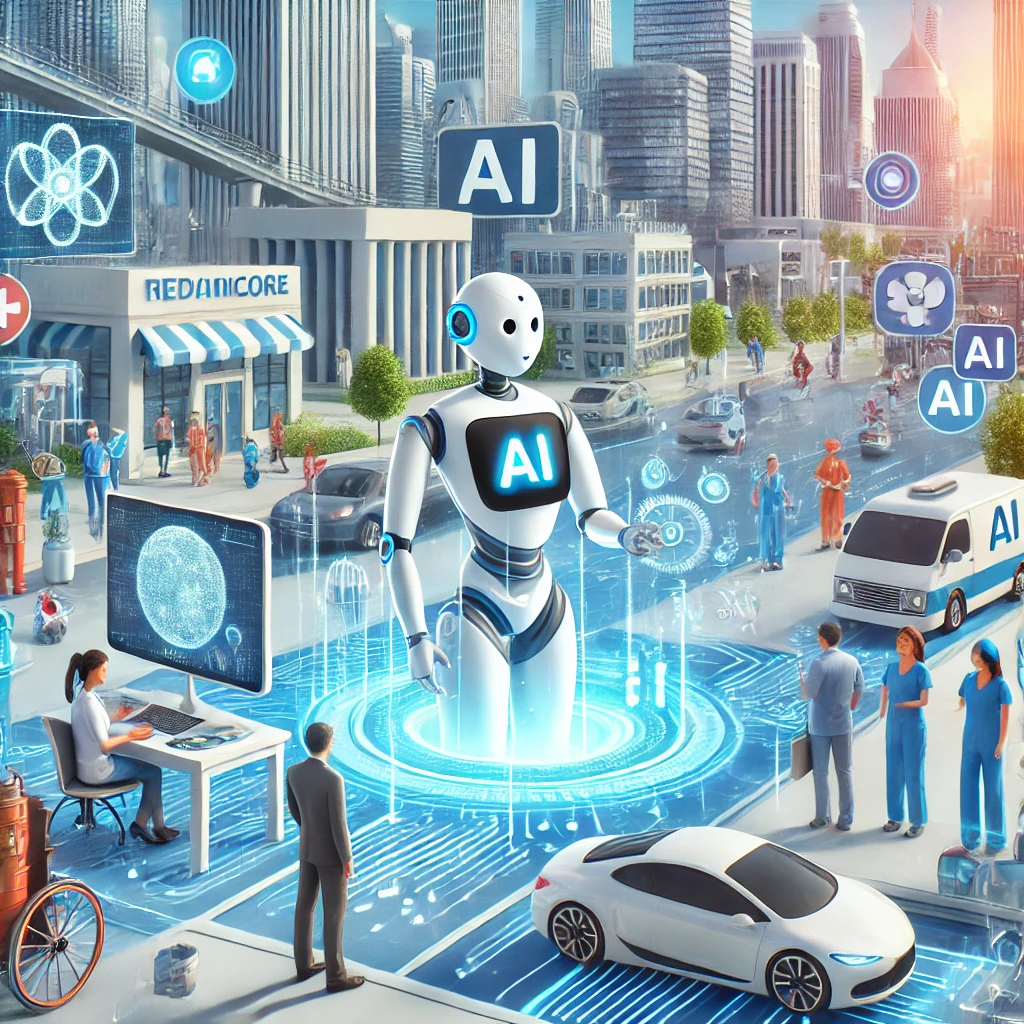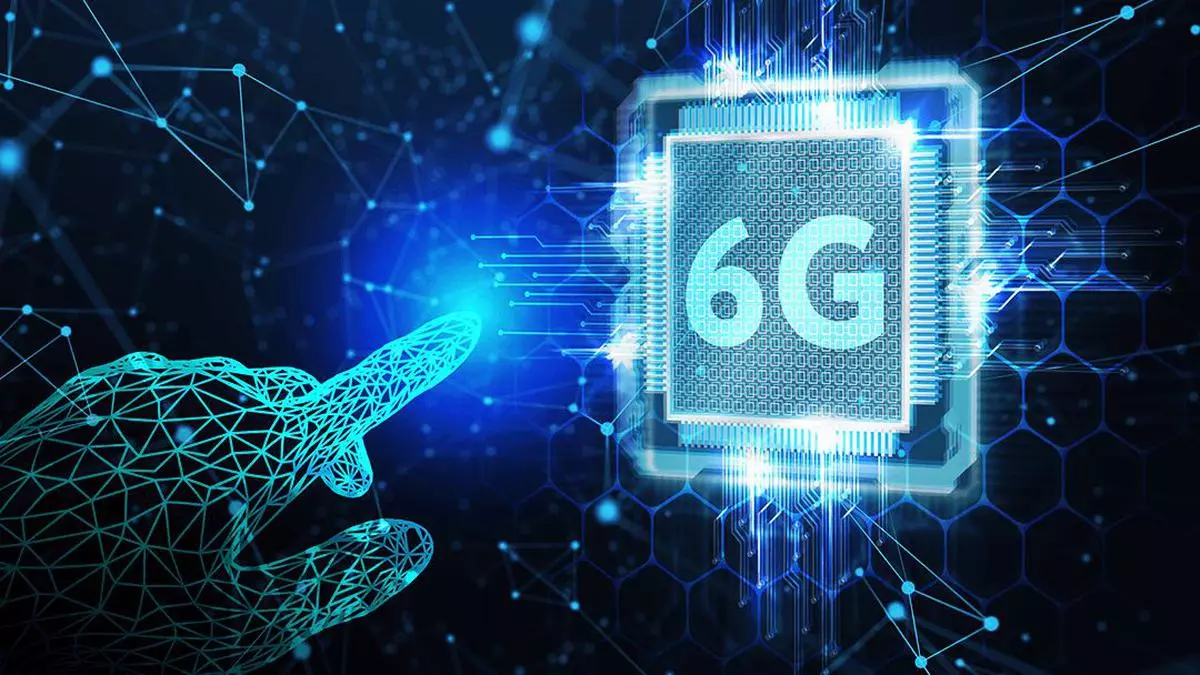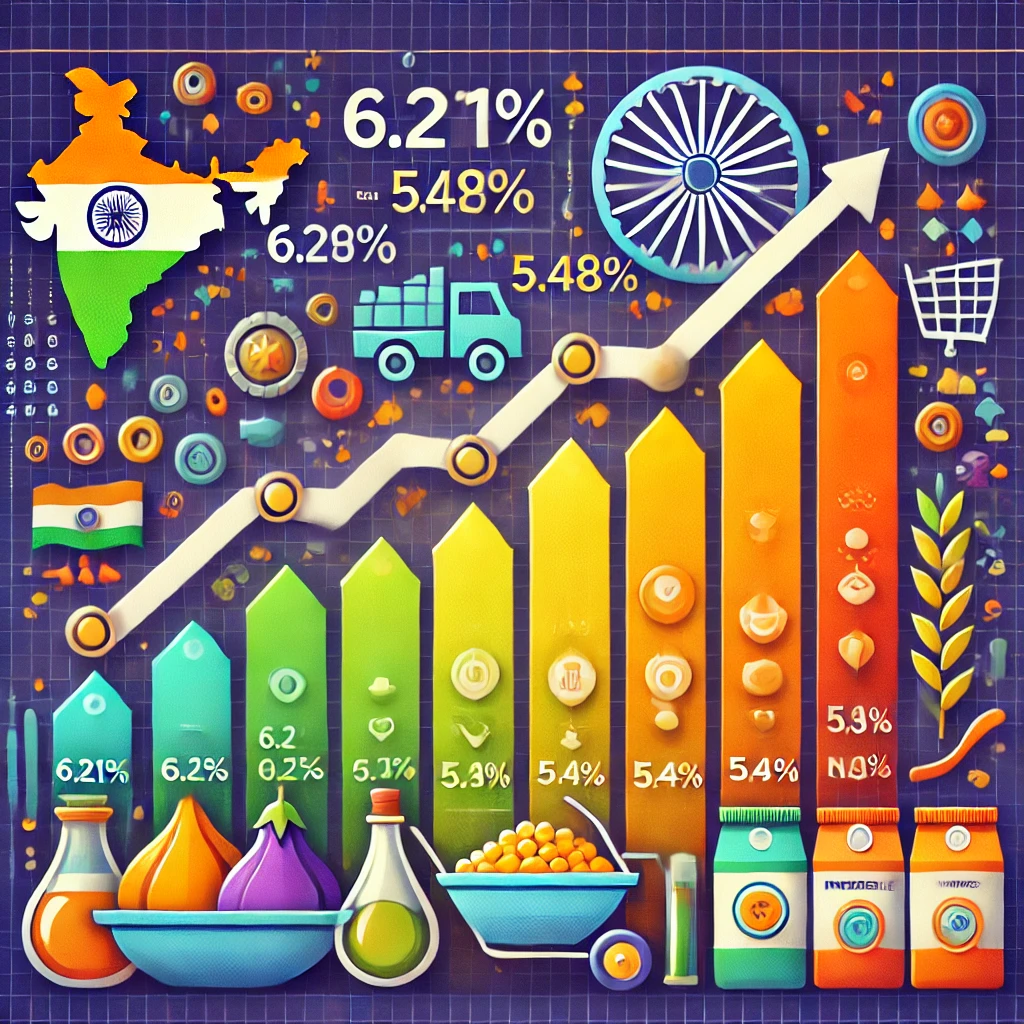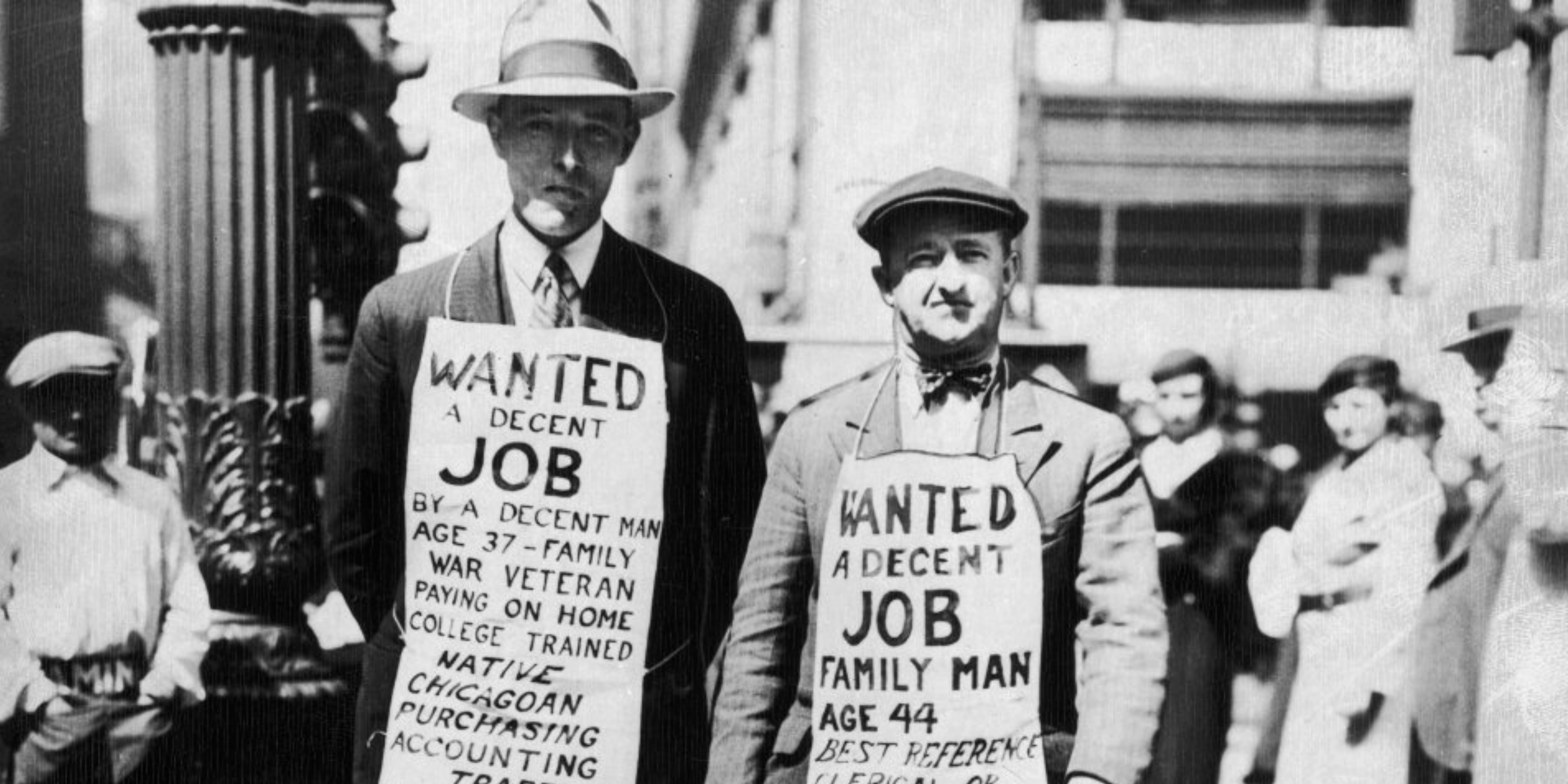Home / opinion / How Artificial Intelligence is Redefining Jobs: The Great Transformation
How Artificial Intelligence is Redefining Jobs: The Great Transformation
By: My India Times
7 minutes read 43Updated At: 2024-12-14

In the last decade, the idea of Artificial Intelligence (AI) has moved from the realm of science fiction to being a powerful, real-world tool shaping industries across the globe. From self-driving cars to AI-assisted customer service, AI is not only changing the way businesses operate but also how we work. In fact, the future of work is already here, and AI is transforming it. While this revolution opens up exciting new career opportunities, it also brings its own set of challenges. Let’s dive into how AI is redefining jobs, the opportunities it offers, and the challenges it brings.
1. The AI Wave: How It’s Reshaping Industries
Artificial Intelligence is no longer just a buzzword; it’s a real game-changer. It's affecting industries across the board—healthcare, finance, manufacturing, entertainment, and even education. AI is being used to perform tasks that once required human intervention. This includes everything from predicting market trends to automating customer support, from personalized shopping experiences to optimizing supply chains.
But what does this mean for the workforce? In a way, it’s freeing up humans from mundane, repetitive tasks and allowing them to focus on more creative, meaningful aspects of their jobs. For example, AI assistants can schedule meetings and manage emails, letting employees focus on brainstorming and innovation. But not everyone is excited about this change.
2. The Bright Side: AI Is Creating New Jobs
While some jobs will be automated, new and exciting roles are emerging because of AI. Here's a peek into the future job market:
AI Engineers and Data Scientists
The rise of AI has given birth to the AI specialist—the people who design and develop algorithms that power these systems. Data scientists, who specialize in analyzing and interpreting vast amounts of data, are more in demand than ever. These professionals are at the heart of AI’s development, helping companies harness AI’s true potential.
AI Integration Experts
Many industries are struggling with integrating AI into their existing systems. This has created a new role for AI integration experts, who ensure that AI systems run smoothly and are effectively incorporated into everyday operations.
AI-Augmented Careers
In many fields, AI is not replacing jobs but enhancing them. For instance, in marketing, AI can analyze customer behavior, helping marketers create more targeted strategies. This allows marketing professionals to focus on creativity and campaign strategies. Customer support agents can use AI-powered chatbots to handle routine queries, while they focus on more complex customer concerns.
AI-Powered Healthcare Roles
AI in healthcare is revolutionizing diagnostics and patient care. Roles for AI specialists in healthcare, who build systems that assist doctors in diagnosing diseases or recommending treatments, are rapidly growing. Telemedicine is another field benefiting from AI, allowing healthcare professionals to conduct consultations remotely with the help of AI tools.
3. The Dark Side: Job Displacement and Ethical Concerns
As AI rises, so do concerns. The potential job displacement is real, and many workers are worried about being replaced by robots. Here’s what we need to consider:
Routine Jobs at Risk
The most vulnerable roles to automation are those that involve routine tasks—data entry, administrative tasks, and even basic customer service. For example, self-checkout machines in supermarkets or automated call centers might replace the need for cashiers and customer support agents.
The Skills Gap
While AI creates new opportunities, it also creates a skills gap. Many workers are not equipped with the skills needed for these new roles, such as proficiency in data analysis, coding, and AI systems. Reskilling and upskilling are crucial for workers to adapt to this changing job landscape.
Ethical Dilemmas
AI is also raising important ethical concerns. From biased algorithms in hiring processes to privacy issues related to AI's data collection, there are many potential pitfalls. The question is: can AI be trusted to make decisions fairly, or does it perpetuate human biases? This is an issue that businesses must address by ensuring that AI is built and used ethically.
4. Navigating the Future: How We Can Prepare for an AI-Driven World
Despite the challenges, AI is here to stay, and the best way to face it is by embracing it. Here’s how both workers and businesses can adapt:
Continuous Learning and Reskilling
Workers should take the initiative to upskill themselves in areas that are AI-resistant. For example, emotional intelligence and creativity are areas where AI falls short. Learning new digital skills like data science and coding will make employees more competitive in the AI-powered job market.
AI Collaboration
Rather than seeing AI as a threat, businesses should view it as a collaborator. AI can be used to assist employees, not replace them. By automating mundane tasks, businesses can allow their employees to focus on tasks that require human insight, creativity, and empathy.
Ethical AI
For AI to be truly beneficial, we need a strong ethical framework to guide its development. Companies should ensure that AI is transparent, fair, and free from biases. They should also be open about how data is collected and used, building trust with both their employees and customers.
Frequently Asked Questions (FAQs)
1. Will AI completely replace human workers?
AI will likely augment human work rather than replace it entirely. While some jobs will be automated, new roles requiring human creativity and decision-making will emerge.
2. Which industries are most affected by AI?
Industries like manufacturing, transportation, customer service, and retail are seeing significant impacts from AI automation. However, sectors like healthcare, education, and finance are also benefiting from AI’s innovations.
3. How can workers adapt to the rise of AI?
Workers can upskill by learning AI-related fields such as data science, machine learning, or AI ethics. Emotional intelligence, creativity, and critical thinking will continue to be important skills for the future workforce.
4. Is AI ethical?
AI is as ethical as the data and systems it’s built upon. If data is biased or flawed, AI can perpetuate those biases. Ethical AI practices are essential to ensure AI is used responsibly and fairly.
5. How will AI impact my job?
AI will likely enhance your job, not replace it. While some routine tasks may be automated, AI can take over mundane work, leaving you more time for strategic and creative tasks that require a human touch.
Conclusion
Artificial Intelligence is the disruptive force of the future, transforming industries and the jobs we do. While it presents challenges like job displacement and ethical concerns, it also opens up a world of new opportunities. By upskilling, adapting, and embracing AI-human collaboration, we can ensure a future where both technology and people work together for the greater good. The key to success in an AI-driven world lies in adaptability, continuous learning, and a commitment to building ethical AI systems.
AI isn’t a threat—it’s an opportunity to rethink and reshape the way we work, creating a future that’s smarter, more efficient, and, most importantly, human-centered.
....In the last decade, the idea of Artificial Intelligence (AI) has moved from the realm of science fiction to being a powerful, real-world tool shaping industries across the globe. From self-driving cars to AI-assisted customer service, AI is not only changing the way businesses operate but also how we work. In fact, the future of work is already here, and AI is transforming it. While this revolution opens up exciting new career opportunities, it also brings its own set of challenges. Let’s dive into how AI is redefining jobs, the opportunities it offers, and the challenges it brings.
1. The AI Wave: How It’s Reshaping Industries
Artificial Intelligence is no longer just a buzzword; it’s a real game-changer. It's affecting industries across the board—healthcare, finance, manufacturing, entertainment, and even education. AI is being used to perform tasks that once required human intervention. This includes everything from predicting market trends to automating customer support, from personalized shopping experiences to optimizing supply chains.
But what does this mean for the workforce? In a way, it’s freeing up humans from mundane, repetitive tasks and allowing them to focus on more creative, meaningful aspects of their jobs. For example, AI assistants can schedule meetings and manage emails, letting employees focus on brainstorming and innovation. But not everyone is excited about this change.
2. The Bright Side: AI Is Creating New Jobs
While some jobs will be automated, new and exciting roles are emerging because of AI. Here's a peek into the future job market:
AI Engineers and Data Scientists
The rise of AI has given birth to the AI specialist—the people who design and develop algorithms that power these systems. Data scientists, who specialize in analyzing and interpreting vast amounts of data, are more in demand than ever. These professionals are at the heart of AI’s development, helping companies harness AI’s true potential.
AI Integration Experts
Many industries are struggling with integrating AI into their existing systems. This has created a new role for AI integration experts, who ensure that AI systems run smoothly and are effectively incorporated into everyday operations.
AI-Augmented Careers
In many fields, AI is not replacing jobs but enhancing them. For instance, in marketing, AI can analyze customer behavior, helping marketers create more targeted strategies. This allows marketing professionals to focus on creativity and campaign strategies. Customer support agents can use AI-powered chatbots to handle routine queries, while they focus on more complex customer concerns.
AI-Powered Healthcare Roles
AI in healthcare is revolutionizing diagnostics and patient care. Roles for AI specialists in healthcare, who build systems that assist doctors in diagnosing diseases or recommending treatments, are rapidly growing. Telemedicine is another field benefiting from AI, allowing healthcare professionals to conduct consultations remotely with the help of AI tools.
3. The Dark Side: Job Displacement and Ethical Concerns
As AI rises, so do concerns. The potential job displacement is real, and many workers are worried about being replaced by robots. Here’s what we need to consider:
Routine Jobs at Risk
The most vulnerable roles to automation are those that involve routine tasks—data entry, administrative tasks, and even basic customer service. For example, self-checkout machines in supermarkets or automated call centers might replace the need for cashiers and customer support agents.
The Skills Gap
While AI creates new opportunities, it also creates a skills gap. Many workers are not equipped with the skills needed for these new roles, such as proficiency in data analysis, coding, and AI systems. Reskilling and upskilling are crucial for workers to adapt to this changing job landscape.
Ethical Dilemmas
AI is also raising important ethical concerns. From biased algorithms in hiring processes to privacy issues related to AI's data collection, there are many potential pitfalls. The question is: can AI be trusted to make decisions fairly, or does it perpetuate human biases? This is an issue that businesses must address by ensuring that AI is built and used ethically.
4. Navigating the Future: How We Can Prepare for an AI-Driven World
Despite the challenges, AI is here to stay, and the best way to face it is by embracing it. Here’s how both workers and businesses can adapt:
Continuous Learning and Reskilling
Workers should take the initiative to upskill themselves in areas that are AI-resistant. For example, emotional intelligence and creativity are areas where AI falls short. Learning new digital skills like data science and coding will make employees more competitive in the AI-powered job market.
AI Collaboration
Rather than seeing AI as a threat, businesses should view it as a collaborator. AI can be used to assist employees, not replace them. By automating mundane tasks, businesses can allow their employees to focus on tasks that require human insight, creativity, and empathy.
Ethical AI
For AI to be truly beneficial, we need a strong ethical framework to guide its development. Companies should ensure that AI is transparent, fair, and free from biases. They should also be open about how data is collected and used, building trust with both their employees and customers.
Frequently Asked Questions (FAQs)
1. Will AI completely replace human workers?
AI will likely augment human work rather than replace it entirely. While some jobs will be automated, new roles requiring human creativity and decision-making will emerge.
2. Which industries are most affected by AI?
Industries like manufacturing, transportation, customer service, and retail are seeing significant impacts from AI automation. However, sectors like healthcare, education, and finance are also benefiting from AI’s innovations.
3. How can workers adapt to the rise of AI?
Workers can upskill by learning AI-related fields such as data science, machine learning, or AI ethics. Emotional intelligence, creativity, and critical thinking will continue to be important skills for the future workforce.
4. Is AI ethical?
AI is as ethical as the data and systems it’s built upon. If data is biased or flawed, AI can perpetuate those biases. Ethical AI practices are essential to ensure AI is used responsibly and fairly.
5. How will AI impact my job?
AI will likely enhance your job, not replace it. While some routine tasks may be automated, AI can take over mundane work, leaving you more time for strategic and creative tasks that require a human touch.
Conclusion
Artificial Intelligence is the disruptive force of the future, transforming industries and the jobs we do. While it presents challenges like job displacement and ethical concerns, it also opens up a world of new opportunities. By upskilling, adapting, and embracing AI-human collaboration, we can ensure a future where both technology and people work together for the greater good. The key to success in an AI-driven world lies in adaptability, continuous learning, and a commitment to building ethical AI systems.
AI isn’t a threat—it’s an opportunity to rethink and reshape the way we work, creating a future that’s smarter, more efficient, and, most importantly, human-centered.
By: My India Times
Updated At: 2024-12-14
Tags: opinion News | My India Times News | Trending News | Travel News
Join our WhatsApp Channel





































































































.png)
 (1).png)























